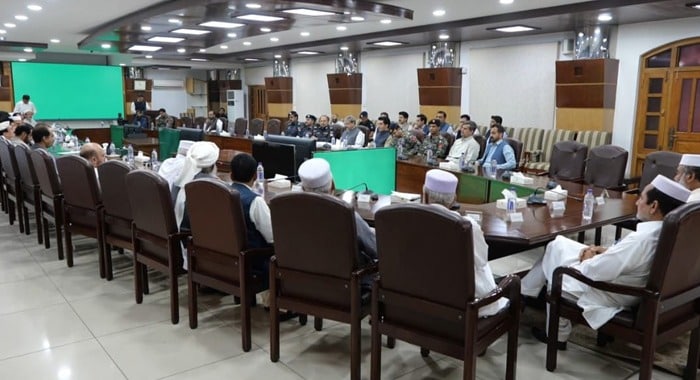In response to a disturbing spike in targeted killings in Bajaur, many allegedly linked to Afghan-based militant groups, a high-level jirga convened at Peshawar Secretariat, bringing together Khyber Pakhtunkhwa government officials, police, security forces, local political leaders, tribal elders, and religious scholars. The gathering followed a wave of violence that claimed numerous prominent lives, including those of Maulana Khan Zeb, Assistant Commissioner Faisal Ismail (Nawagai), Tehsildar Abdul Wakeel (Nawagai), and several police and security personnel.
Participants collectively expressed deep grief over the loss of innocent lives, offered prayers for the martyrs, and reiterated solidarity with the bereaved families. The jirga acknowledged the longstanding tradition of resolving regional crises through community dialogue, and emphasized the need for unified action to restore lasting peace in the restive border district.
In a significant outcome, the jirga approved the formation of a weekly security coordination committee. This body will include representatives from the provincial administration, law enforcement agencies, local elders, and elected officials. It will meet regularly to review security measures, evaluate threat levels, and oversee the implementation of counter-terrorism strategies on the ground.
The acting Chief Secretary and Inspector General of Police assured the jirga that maintaining public safety remains the government’s top priority. They emphasized that intelligence-based operations would be launched against verified militant targets, with minimal disruption to the daily lives of civilians. These precise, data-driven actions aim to dismantle terrorist networks without blanket operations that might strain community relations.
Furthermore, the jirga agreed to forward recommendations for the compensation of martyrs’ families, strict action against rising incidents of extortion, and enhanced coordination between state institutions and local communities. The meeting underscored the importance of restoring confidence in law enforcement, particularly in areas where public perception has been affected by recent violence.
Participants unanimously concluded that defeating militancy in Bajaur requires collective political resolve, public cooperation, and sustained, lawful action by the state. The jirga’s decisions are seen as a critical step toward reestablishing stability and paving the way for a more secure and prosperous future for the region.





